Pharmacists in HIV and Viral Hepatitis Management: Policies, Practices, and Resources
Details
Overview
Summary
- Pharmacists have a vital role to play in patient care in HIV, viral hepatitis and sexual health. From 1 July 2015 HIV and HBV medicines are able to be dispensed in community pharmacy, with Government remuneration. The medicines remain Section 100 Highly Specialised Drugs (S100) but will be accessible by patients from community pharmacies, where previously these medicines have only been dispensed in hospital setting.
- Community pharmacists are an integral part of the HIV and hepatitis B and C care teams, when people living with HIV or hepatitis B will be able to choose to have their s100 medications dispensed in the community.
- ASHM has had a long association with a small number of mainly hospital-based pharmacists who work in HIV medicine and trained pharmacists who have ventured into other areas such as research.
- ASHM is involved in a number of initiatives to equip community pharmacists to play a greater role in HIV medicine, including face-to-face training, resources and webinars. We are also working with pharmacists’ professional publications to raise awareness about s100 dispensing in the community.
Community Pharmacy Dispensing of Hepatitis B s100 Medications
Since 1 July 2015 pharmacists have been able to dispense Hepatitis B s100 medications irrespective of whether the prescription originated in the community or from a public hospital.
Pharmacists do not need to keep stock on the shelf, supply can be filled on a just-in-time basis. Some pharmacies with a higher prevalence of hepatitis B in their area, near a hepatitis B treatment service or community hepatitis B prescriber may stock medications. These pharmacists will play an increasingly important role in the ongoing care of people living with hepatitis B.
Discuss individual arrangements with clients to suit their needs and your ordering processes. The treatment remains life-long and it is vital that drugs are taken as prescribed without dose interruptions or missed dose.
The process to prescribe these medicines will be the same for all prescribers, with streamlined PBS Authority prescription requirements applying for community, private and public hospital based prescribers. Telephone-based PBS Authority approval will still be required prior to prescribing increased PBS quantities and/or increased repeats.
Further information about the scheme is available on the New Options for HIV and Hepatitis B Medicine Supply Frequently Asked Questions document. Information may also be found on the PBS website and through the Pharmacy Guild of Australia, the Pharmaceutical Society of Australia.
Community Pharmacy Dispensing of HIV s100 Medications
Since 1 July 2015 pharmacists have been able to dispense HIV s100 medications irrespective of whether the prescription originated in the community or from a public hospital.
Discuss individual arrangements with clients to suit their needs and your ordering processes. The treatment remains life-long and it is vital that drugs are taken as prescribed without dose interruptions or missed dose.
The process to prescribe these medicines will be the same for all prescribers, with streamlined PBS Authority prescription requirements applying for community, private and public hospital based prescribers. Telephone-based PBS Authority approval will still be required prior to prescribing increased PBS quantities and/or increased repeats.
Further information about the scheme is available on the New Options for HIV and Hepatitis B Medicine Supply Frequently Asked Questions document. Information may also be found on the PBS website and through the Pharmacy Guild of Australia, the Pharmaceutical Society of Australia.
Training – Dispensing HIV and Viral Hepatitis Medications: An Update for Community Pharmacists
Broadening access to medications in the community gives patients more choice about where they access their medications and promotes the health and wellbeing of people living with viral hepatitis and HIV. This 3hr face-to-face training has been developed in partnership with the Pharmacy Guild of Australia Queensland branch and has been piloted in Queensland in 2018.
This interactive training provides community pharmacists with the knowledge and confidence to dispense medications for HIV and viral hepatitis in the community. Pharmacists can play an active role to improve patient outcomes through patient-centred, collaborative and professional practice. The training is accredited for 2 hours of Group 1 CPD (or 2 CPD credits) suitable for inclusion in an individual pharmacist’s CPD plan which can be converted to 2 hours of Group 2 CPD (or 4 CPD credits) upon successful completion of relevant assessment activities.
To find the next available training session, visit the ASHM training calendar. To request this training is delivered in your local area, email [email protected].
Guidelines: HIV and community pharmacy
The Pharmaceutical Society of Australia has produced comprehensive practice support resources that give community pharmacists a valuable overview of the changes, the condition and the medicines used in treatment:
- HIV quick facts (PDF, 82.9 KiB)
- HIV resources booklet (PDF, 2.5 MiB)
Post Exposure Prophylaxis (PEP) is not on PBS and should not be dispensed by Community Pharmacists. PEP is the administration of HIV antiretroviral medication soon after exposure to HIV. The aim is to prevent the establishment of infection. PEP is not a licensed use for ART and so is not able to be dispensed on the PBS. The only way patients can access PEP is from a hospital pharmacist, where supply is subsidised by state and territory health departments. If a patients comes to you requesting PEP please direct them to the local hospital emergency service. It is important that PEP is administered as soon as possible after exposure and definitely within 72 hours. You should not attempt to order PEP privately for a patient as this will be very costly and time for stock to arrive could render the administration of PEP useless.
Key Points
It is vital that drugs are taken as prescribed without dose interruptions or missed dose.
It is anticipated that many pharmacists will fill HIV s100 scripts on a just-in-time basis. Some pharmacies with a high HIV positive clientele or near a HIV service or community HIV prescriber may stock some common medications and combinations. These pharmacists will play in increasing important role in the ongoing care of their HIV positive clients.
HIV treatment has improved greatly over the past 15 years:
- Many drugs are available in single pill daily regimens.
- The side-effect profile is much improved and fewer toxicities are experienced.
- Treatment remains life long and while newer medications are more forgiving of the occasional missed does, the development of resistance remain a big issue for people living with HIV.
- It is vitally important that people can stay on their first line therapy as long as possible.
- The aim should always be 100% compliance with the prescribed regimen.
One of the most common reasons reported for missed doses is forgetting or having difficulties getting a script filled.
Community dispensing is much more flexible than having to rely on hospital based dispensing where access hours are much more restrictive. But it means that pharmacists may need to initiate individual arrangements with their HIV clients.
ASHM is advising clinicians and their patients to get scripts filled a week before they run out of pills.
Information for consumers is available on the Positive Life website
NSW Co-Payment Arrangements
From 1 October 2015, NSW residents who are patients of NSW public hospitals or authorised community prescribers in NSW will not be required to pay the patient co-payment for Section 100 (s100) Highly Specialised Drugs or s100 injectable and infusible chemotherapy medicines in NSW. Please find a summary of key points and links to key resources below:
Key Information
- This co-payment arrangement is only for NSW residents who are patients of NSW public hospitals or authorised community prescribers in NSW.
- Patients who live outside NSW will not have their co-payments covered in either a public hospital or community pharmacy.
- Patients prescribed s100 Highly Specialised Drugs through NSW public hospitals or authorised community prescribers in NSW must consent to NSW Health meeting the co-payment on their behalf by signing a consent form.
- From 1 April 2016, patients will be able to consent for a period of 12 months.
- The pharmacy will sight the consent form before dispensing and staple to the repeats.
- NSW community pharmacies can seek reimbursement for eligible patients not charged a co-payment through the 6CPA Registration and Claiming Portal.
- If you or your patients encounter any issues with HIV community dispensing, please contact the ASHM prescriber team at [email protected] or phone 02 8204 0777.
Key Resources
Conferences and Events
Discover our events calendar, featuring impactful health conferences and educational gatherings. Join health professionals, researchers, and community organisations in HIV, BBV, sexual health and other health fields. Explore our calendar to find engaging opportunities tailored to your interests and professional development.

